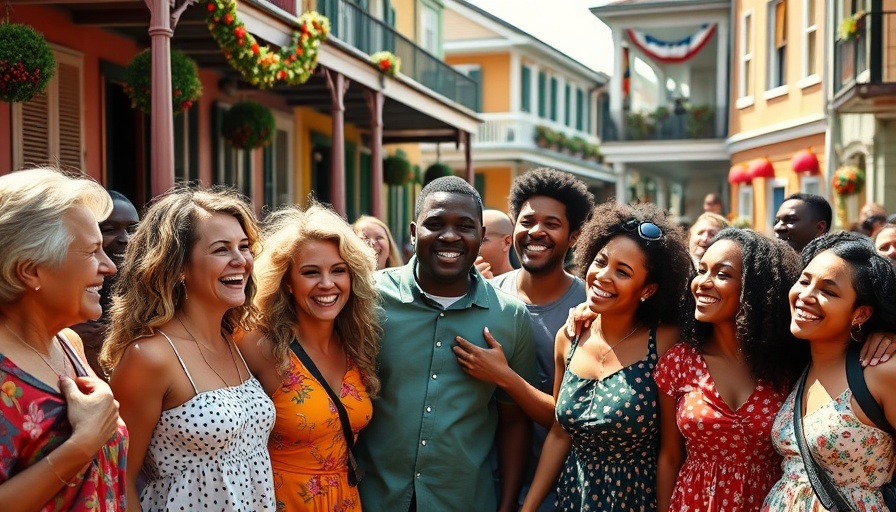
Target's Controversial Stance on Inclusivity
In recent weeks, Target has come into the spotlight as local shoppers in New Orleans, particularly from the African-American community, increasingly call for the retail giant to address their concerns regarding its policies related to race and inclusivity. This movement reflects broader social justice issues and highlights how large corporations must respond to community needs.
A Community Assembling for Change
The outcry from local residents is a reminder of the power of collective voice in fostering change. African-American activists and supporters are coalescing, bringing attention to needs that often go unaddressed in corporate settings. It's inspiring to see communities unite—not just in protest, but in solidarity for uplifting local voices and advocating for their rights within larger structures.
Unpacking the Historical Context
Reflecting back on civil rights movements, many community leaders are drawing parallels between past struggles and current negotiations with brands like Target. Discussions around race, representation, and equity echo historical milestones, reminding us of the ongoing work necessary to achieve a just and equal society. As marketing and branding strategies become more inclusive, they must also acknowledge the community's role in shaping these narratives.
Moving Towards Inclusivity: What Can Be Done?
Target, like many retailers, has a unique opportunity to foster better relationships with the communities they serve. Activists suggest several actionable insights, such as increasing African-American representation in their hiring practices and leadership roles, partnering with local Black-owned businesses, and investing in community initiatives. These steps could not only strengthen their business model but also extend their reach and foster goodwill among consumers.
Emotional Connection: The Impact of Local Business on Community Well-Being
As the movement grows, it’s worth noting how local businesses contribute to the overall health of the community. Consumers are more likely to shop at places that reflect their values and understand their needs. This is particularly important in a city like New Orleans, rich in cultural diversity and history. The potential for Target to develop meaningful partnerships with Black-owned businesses could enhance their image and integrate them more deeply into the fabric of the community.
The Future: Positive Change on the Horizon
Looking forward, many hope that the energy and activism seen among local shoppers signify a transformative moment not just for Target, but for big-box retailers everywhere. Such grassroots movements can lead to informed decision-making and positive changes that benefit entire neighborhoods. As New Orleans residents band together, they serve as a model for other communities facing similar situations across the country.
Conclusion: Join the Movement
As consumers, there is power in how we choose to represent ourselves through our purchasing decisions. Taking part in this dialogue around inclusive practices is essential. The empowerment seen within the African-American community in New Orleans is a voice for many, and it’s one that encourages engagement in civil rights with a commitment to justice and equality. Join the conversation, support local businesses, and help spread awareness about the importance of representation.
 Add Row
Add Row  Add
Add 



Write A Comment